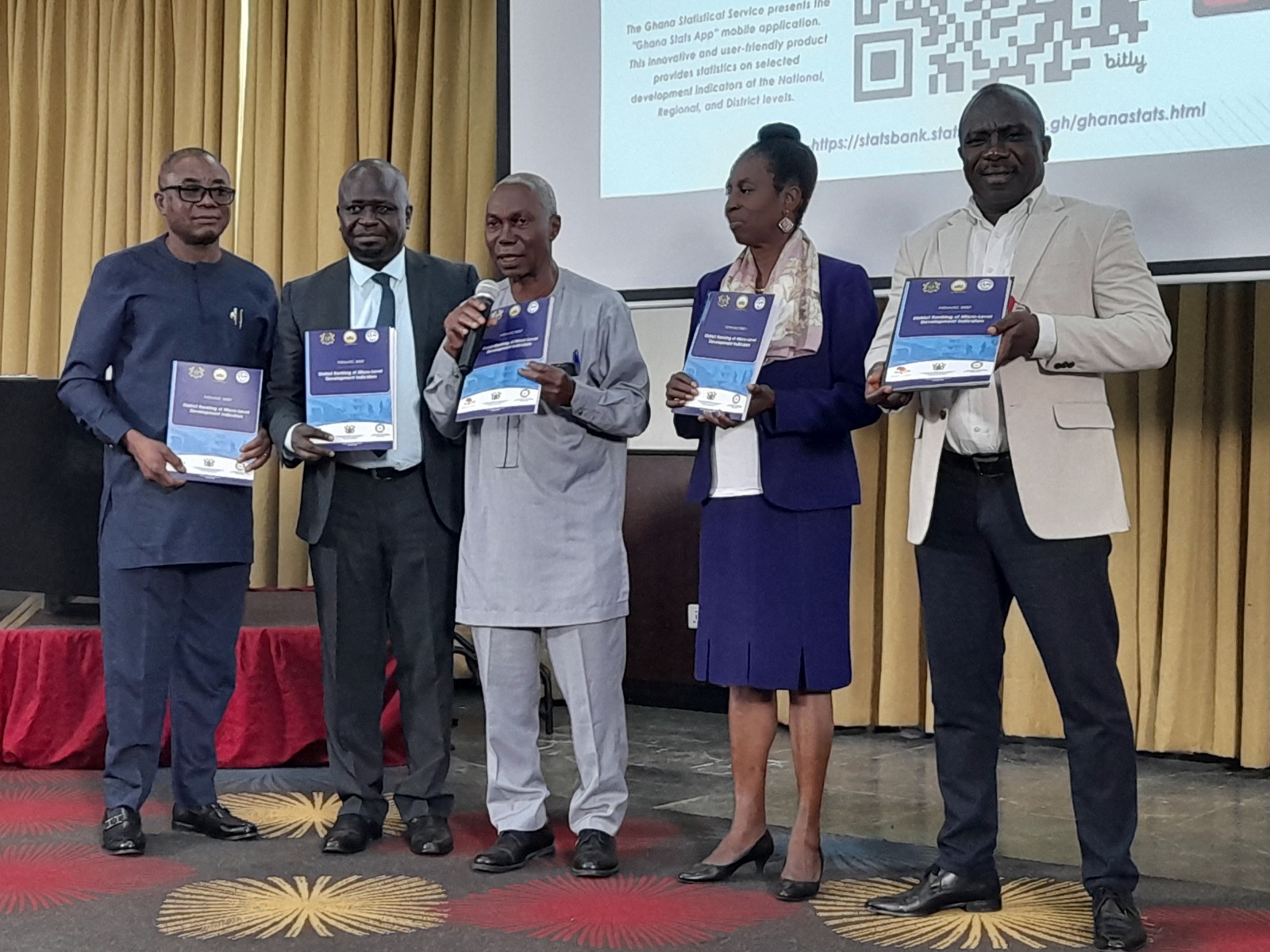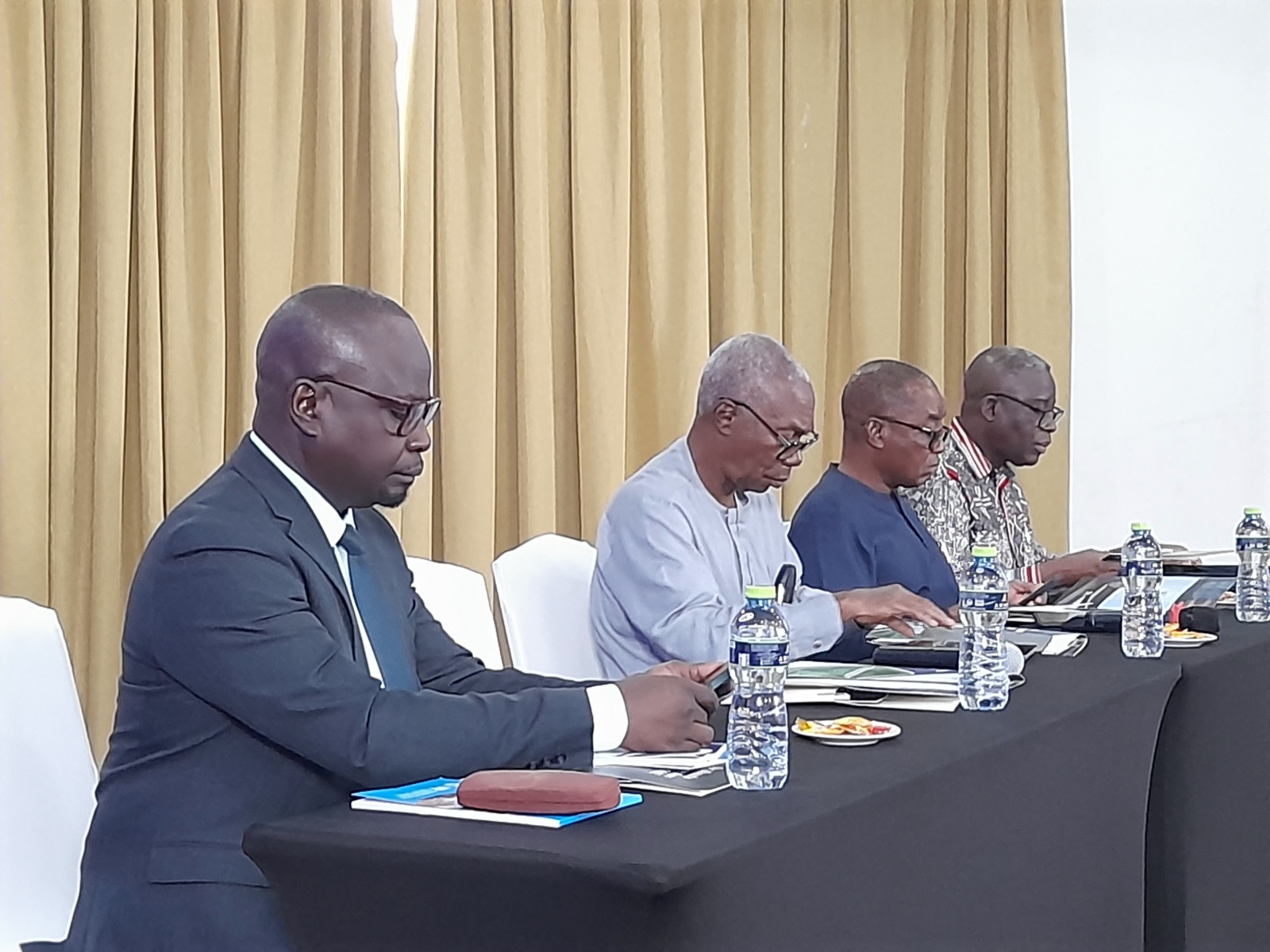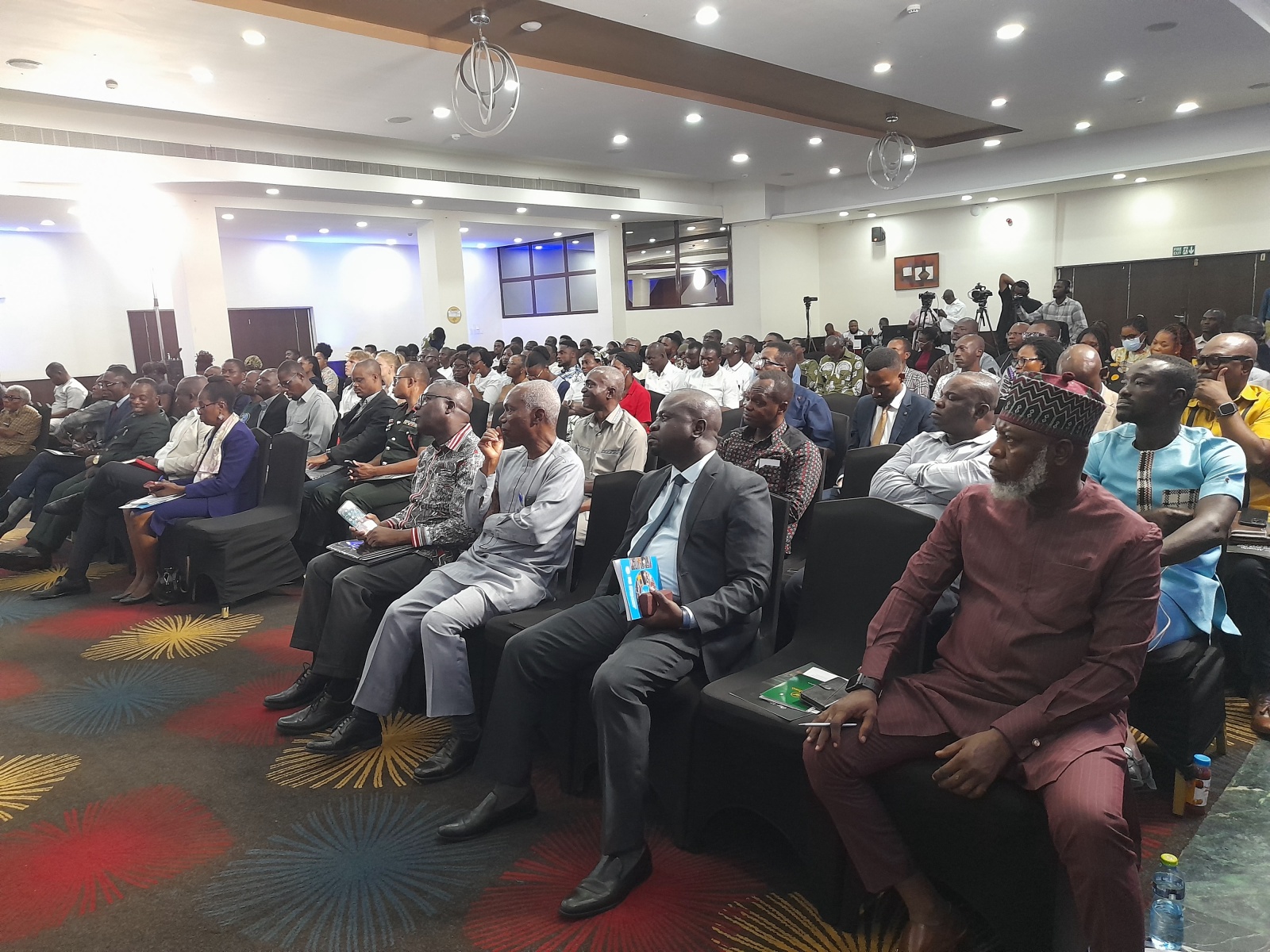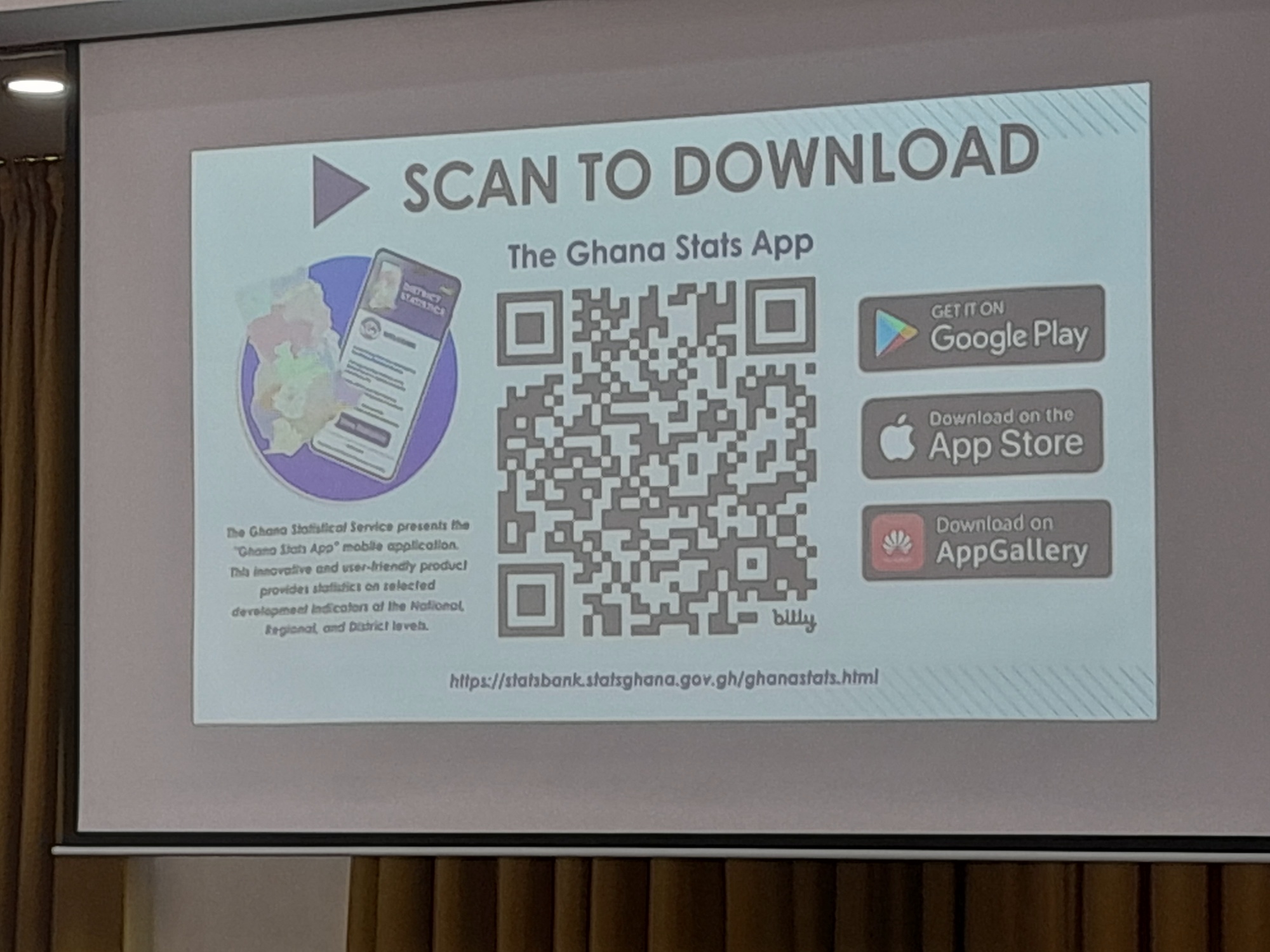GSS collaborates with RIPS to Discuss Ghana’s Population Future and its Impact on National Development

Prof. Ayaga A. Bawah, Director of the Regional Institute for Population Studies (RIPS) at the University of Ghana, has outlined three critical demographic trends expected to shape Ghana's future in the coming decades.
In a presentation titled "Key Messages from the 2024 Revision of the World Population Prospects – Policy Implications from the 2021 Population and Housing Census (PHC) Thematic Report on Population Projections (2021-2050)," he emphasised the implications of these trends for national development.
Prof. Bawah was speaking at the dissemination of Ghana’s population prospects, district-level population projections and launch of the maiden district rankings report and Ghana Stats Mobile Application.
The event, held at the Alisa Hotel in Accra, was organised by the Ghana Statistical Service (GSS) in collaboration with RIPS to discuss the country’s population trends and its impact on national development.

Prof. Bawah pointed out that by 2050, adolescents could constitute one-third of Ghana's population. He noted that this "youth bulge" presents both opportunities and challenges. "If we invest in our young people, providing them with skills, education and employment opportunities, we can unlock the 'demographic dividend' and boost Ghana's economic growth. However, neglecting this demographic shift could become a ticking time bomb" he warned.
In addition to the increasing youth population, Prof. Bawah discussed the projected tripling of Ghana's elderly population by 2050. With one in 10 Ghanaians is expected to be over 60, he stressed the urgent need for reforms in retirement, pension and healthcare systems to ensure that the elderly are cared for with dignity. "An aging population brings a whole host of social and economic challenges that Ghana is simply not prepared for. We need to act now to ensure our elderly citizens are cared for with dignity in their twilight years," he explained.
Another significant trend identified by Prof. Bawah was rapid urbanisation. By 2050, 15 out of Ghana's 16 regions are projected to have populations exceeding one million. This shift, he explained, necessitates a fundamental rethink of urban planning and service delivery in Ghana to prevent the emergence of sprawling, unliveable megacities.
Prof. Bawah urged policymakers to act on the demographic data to harness the country's population potential, cautioning that failure to do so could lead to missed opportunities and crises.
Chairperson for the occasion, Emeritus Prof. Kofi Awusabo-Asare, Department of Population and Health, University of Cape Coast, drawing on his extensive experience, underscored the importance of contextualising data within the broader framework of national development priorities.
"Understanding the number of people is crucial, but what’s more important is using that data to guide national development strategies," he said. He also highlighted the importance of ensuring that the needs of the youth are reflected in state policies.

Dr. Grace Bediako, Chairperson of the Ghana Statistical Service Governing Board, underscored the critical role of population statistics in planning for a more equitable and resilient future. She urged policymakers to make data-driven decisions that would help Ghana achieve its national development goals and ensure that "every district thrives."
Senior Policy Advisor at the Office of the Vice-President, Prof. Kwaku Appiah-Adu, who delivered a statement on behalf of government, reaffirmed its commitment to leveraging population data to accelerate national development. He lauded the GSS for rolling out the population and district-level microdata to provide disaggregated information to help in decision-making and planning.
In her presentation, Deputy Government Statistician Dr. Faustina Frempong-Ainguah revealed that GSS projects Ghana's population to grow by 20 million by 2050, reaching over 53 million people.
Currently, the GSS puts the country's population at 33.07 million. The Service further projects that from now till 2030; the national population will increase annually by 711,706. In terms of the youth (15 to 35 years), she said the youthful population was projected to increase from the current 14.12 million to 15.85 in 2030.
Against that backdrop, Dr. Frempong-Ainguah noted the importance of implementing progressive policies to harness the potential of the growing youth population.
Government Statistician Prof. Samuel K. Annim introduced the Ghana Stats Mobile App, designed to offer district-level statistics based on the 2010 and 2021 PHCs. The app is a user-friendly tool allowing users to access data and rankings for all 261 districts in Ghana, as well as indicators at the national and regional levels. The District Ranking of Micro-Level Development Indicators Report, launched alongside the app, provides further insights into district-level disparities in various development indicators.

This initiative marks a significant step towards making statistical information accessible not only to policymakers but also to households, empowering individuals to make informed decisions about their communities.
The event was moderated by Dr. Raphael Awuah, Regional Technical Advisor (Africa) of Vital Strategies.